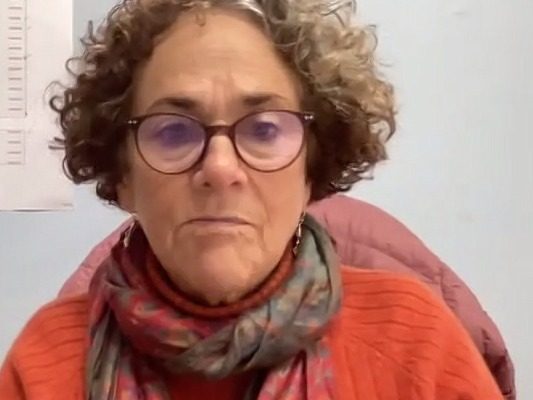Just like in Nigeria’s oil and gas sector, a solid minerals ‘curse’ may have started manifesting in host communities across the country, but a glaring and pathetic case is that of Ezillo and Ikwo communities of Ebonyi State where the Chinese, Indian and their local facilitators mine precious minerals with reckless abandon and without regard for the impact of their activities on the environment, as well as gross violation of the socio-economic rights and livelihoods of the locals
By Edu Abade
A solid minerals ‘curse’ capable of consuming communities, if not properly regulated and managed, is waiting to manifest across localities where commercial quantities of non-oil minerals are found whether in Nasarawa, Edo, Kwara, Kogi, Osun, Plateau, Oyo and most recently, Ebonyi State in South East Nigeria.
Although it has been established that mining activities have been going on in several parts of Ebonyi State for decades, recent checks reveal that while Chinese, Indian and some Nigerian firms continue to engage in life-threatening mining of gold, lead, copper, granite, limestone and precious stones, among others, there are no environmental audits or proper Environmental and Social Impact Assessment (ESIA) prior to the mining activities.
Curiously, there have been no proper checks and regulations on the part of the government, in spite of the existence of an act that regulates such activities in the country. As a result, there have been massive land degradation, pollution and destruction of livelihoods, discriminatory and poor compensation schemes that mostly benefit local elites, use of military and police to suppress dissent, as well as loss of youth and skilled population due to economic collapse.
The findings of a report titled: Mining Practices in Ezillo and Ikwo Communities of Ebonyi State: An Environmental Time Bomb, was unveiled at a media briefing jointly organised by the Community Development Advocacy Foundation (CODAF) in collaboration with the Environmental Defenders Network (EDEN), Renevelyn Development Initiative (RDI) and Africa Just Transition Network (AJTN) and attended by no fewer than over 60 participants, including legal experts, grassroots organizers, and media professionals.

While unveiling the report, which exposed egregious human rights violations and environmental degradation of host communities by Chinese and indigenous mining companies in Nigeria, CODAF disclosed that field investigations conducted in four communities of Ebonyi State revealed the total absence of ESIA, a legal requirement under the Nigeria Mineral and Mining Act 2007.
The report also revealed a bypass of due process by the mining firms, signing of non-legislative agreements with local elites and exclusion of the broader community in the processes, as well as prevalent diseases and sickness associated with air pollution and noise from rock blasting in the mining impacted villages.
Graphic images released in the report also showed that abandoned quarry pits in Okpochiru-Amorie Village Ezillo can become habitats for freshwater snails that act as an intermediary host for Schistosoma haematobium, as well as pollute groundwater. The images also showed that abandoned Lead mine site at Amagu/Enyieba community, Ikwo could cause groundwater pollution, especially pollution by heavy metals, which threatens human and animal life.
At the global launch, Assistant Coordinator of the AJTN, Ciza Mukabaha said the report revealed a willful non-compliance with national and international legal frameworks, highlighting the devastating impact of pollution, land grabbing, intimidation, and the failure of companies to fulfill community development agreements. These communities deserve justice, compensation, and comprehensive remediation of the damages caused.
Chief Research Officer and Senior Lecturer, National Centre for Energy and Environment, Energy Commission of Nigeria (ECN), University of Benin, Dr. Chukwudi Nnaemeka Emeribe, who presented findings of the report, said the surveyed firms mining solid minerals include China Jing Zaing Company at Amaeze-Ezillo; Sheng-Long Mining Investment Limited at Okpochiru-Amorie Village, Ezillo; Forever CHM Limited Quarry Company at Ogbaragba, Amorie Village Ezillo; First Patriot Lead Mining Limited along Afikpo Road in Ikwo Local Government Area and an indigenous company, Seaman Quarry Company at Amaeze Autonomous Community.
Emeribe explained that for the locals, the companies pay them as low as between N40,000 and N50,000 and are never employed at professional or senior levels, a strategy aimed at keeping the indigenes perpetually disempowered.
“The Community development Agreement (CDA) between the miners and landowners is the greatest instrument of corruption and threat to promoting sustainable development in the impacted communities
“First document was raised and signed between heads of families of land owners (Known the Lessors) and the miners. Representative of the Land who are referred to as in the CDA document as immediate landlords or Lessors do not represent the impacted communities or their concerns/opinions
“Secondly, the CDA document is not backed by Acts of Parliaments (Federal and State) in addition to international legislative frameworks on the environment of Nigeria as a signatory to. As a result, the non- fulfillment of obligations to impacted communities is inevitable,” the report stated.
The report findings also indicated that rural electrification critical for socio-economic development, enhancing livelihoods, education and productivity in rural areas is lacking. The absent of electricity and (or) affordable energy sources is a major source of economic hardship in the impacted communities coupled with the ongoing environmental degradation with associated health risks and effects of crop production
“Environmental and Social Impact Assessment (ESIA), which must be conducted at the onset of any major project to determine their potential impacts (negative or positive) was not conducted with respect to the activities of quarry and lead mining companies in Ezillo and Ikwo communities of Ebonyi State.
“The non-inclusion of potentially impacted persons from the onset through a proper EIA process before the issuance of mining licences is the failure of both Federal and State Government and for which foreign mining companies in the State has exploited to neglect the rights of impacted community as well as make effort to mitigate environmental pollution
“More so, the lapses have given rise to a situation where the quarry/lead mining companies pay meagre compensation to Landlords or the Lessor, who have the power to renew the Lease contract (Every 5 years) while the impacted communities who bear the brunt of the mining/quarry operations are completely left out and (or) neglected,” it stated
Responding to the issues raised in the report, Mercia Andrews of the Rural Women Assembly (South Africa) said: “The stories from Ezillo and Ikwo reflect a broader struggle of rural communities across Africa. Organizing women and affected people into strong, informed movements remains crucial to reclaiming our land, rights and future.”
In his intervention, Executive Director of EDEN, Barrister Chima Williams said: “What we see in this report is not just negligence-it is structured impunity. Legal strategies, including class action lawsuits and community litigation are necessary tools to hold violators accountable and secure justice.
“Communities now face severe air and water pollution, infertile soils, declining crop yields, respiratory illnesses, and disrupted livelihoods. Vulnerable groups-especially women, youth and persons with disabilities-have been entirely excluded from compensation processes and decision-making structures. Meanwhile, state security forces are reportedly used to intimidate community members who resist or speak out.”
On his part, Executive Director of RDI, Philip Jakpor, said: “The findings are disturbing and add to the pool of resources available to hold the mining firms to account. The media must rise to its responsibility of amplifying community voices and exposing environmental injustices. Silence in the face of these injustices is as dangerous as the grave situation in the communities.”
Also speaking, Director of Campaigns and Administration at CODAF, Maimoni Ubrei-Joe, explained that the report is intended to ignite not only outrage, but also concrete action, adding: “The people of Ezillo and Ikwo deserve justice, dignity, and a healthy environment to call home.”
Specifically, Ubrei-Joe lamented the total absence of ESIA, severe pollution, land degradation and destruction of livelihoods, discriminatory compensation practices and use of force to silence dissent, marginalization of women, youth and persons with disabilities (PWDs) and large-scale economic collapse and youth migration
CODAF, therefore, recommended independent environmental audits and post-impact assessments, fair and inclusive compensation frameworks, genuine community engagement through negotiations, resettlement and livelihood restoration for displaced families as well as stronger enforcement of environmental laws at national and international levels.
Earlier, Executive Director of CODAF, Richard Benin, pointed out that the field investigations were necessitated by the grave reports the organisation was getting from host communities where mining was causing largely undocumented impacts.
Benin, who moderated the virtual engagement, also recommended independent environmental audits including post-impact assessments to quantify damage and guide restoration, fair and inclusive compensations for the locals that align with international standards such as the World Bank’s OP 4.12. It also demanded inclusive community engagement that must take into cognizance the position of women, youth, and marginalized groups in all negotiations and agreements.
Others are a thorough implementation of resettlement and livelihood programs and enforcement of environmental laws, which must center on upholding Nigerian and international frameworks including the Africa Development Bank (AfDB) Safeguard Policy.



